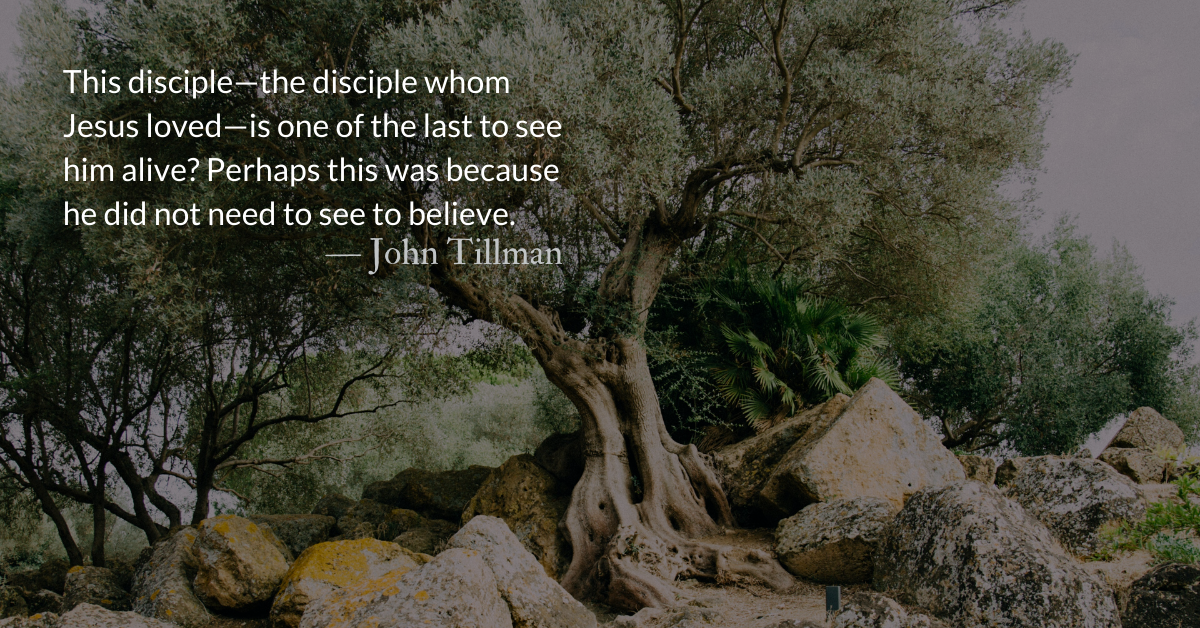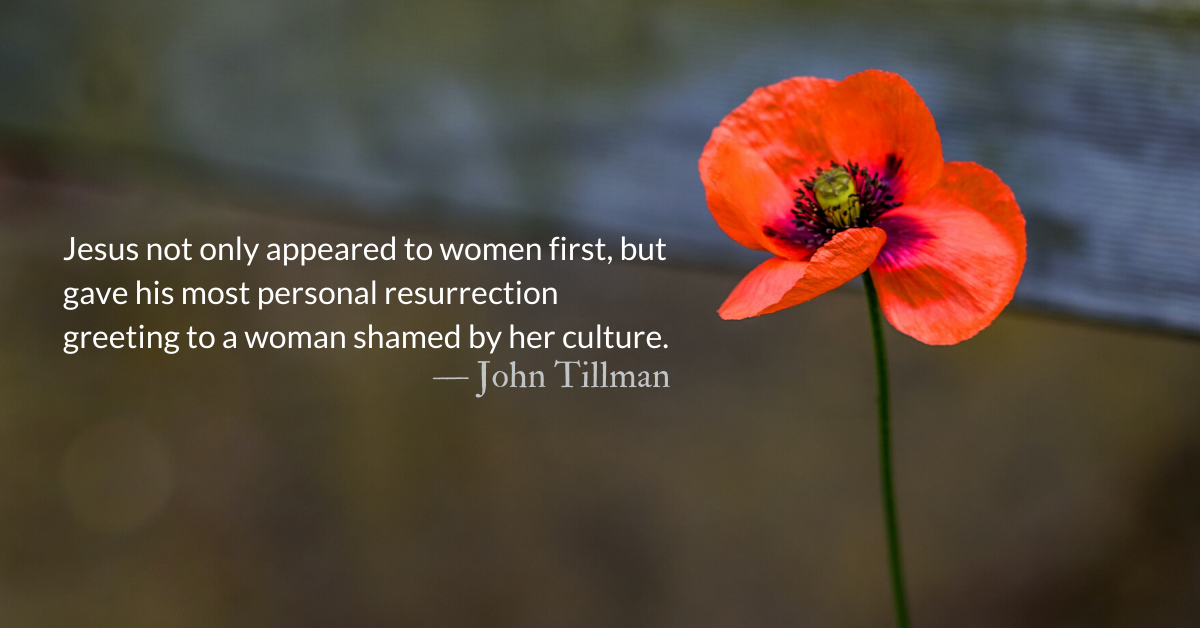Scripture Focus: 1 Timothy 5.22
Do not be hasty in the laying on of hands, and do not share in the sins of others. Keep yourself pure.
John 21.17
The third time he said to him, “Simon son of John, do you love me?”
Peter was hurt because Jesus asked him the third time, “Do you love me?” He said, “Lord, you know all things; you know that I love you.”
Jesus said, “Feed my sheep.
*This Easter week as we shelter in our homes due to COVID-19, we may feel more like the disciples than we ever have before. We continue to look this week at the appearances of Jesus, who comes to us as we seek normalcy to call us to something greater.
Reflection: Normal is Dead—Resurrection Appearances
By John Tillman
Scripture doesn’t tell us why Peter went fishing but it is not hard to imagine he needed a touch of normalcy.
The disciples had been through a panoply of trauma and the familiar labor would be calming to them. Rope and oar and sail and sea (whatever those are to us) can provide an escape and a rhythm of distraction amidst a world of confusion.
This was an outspoken group of disciples—the loudmouths and extroverts. Besides Peter, there was Nathaneal, the sarcastic wisecracker, Thomas, the last to believe and first to call Jesus “my God,” James and John, who thought they should be closest to Jesus on his throne, and two unnamed disciples, one of whom is probably Andrew, Peter’s brother.
From Jerusalem to the Sea of Tiberius was about a 100-mile walk. Perhaps they had already left the city to go home. Perhaps they had access to faster transportation. John doesn’t elaborate. But it wasn’t a casual afternoon of fishing as a pastime. Some believe this trip implied Peter was resuming his prior occupation and giving up the ministry.
Then Jesus appears, sitting on the shore, pointing out the flaws in their plan. “Friends, haven’t you any fish?” This appearance is a callback—a reminder—of the initial callings of these fishermen and particularly of Peter. “You are fishing in the wrong place again, Peter. You aren’t even fishing for the right species. I called you to fish for people, remember?”
We all feel the cry for normalcy rising in us now. We just want to go back to work. Back to school. Back to self-reliance. Back to the illusion of safety and security in our own power and the world’s systems.
No matter how much we long for normalcy, the life Jesus called us to is not normal. Many foundations we’ve built on are being swept away and we can’t go back to pretending that our sand was a firm foundation after all. There are things about our normal that shouldn’t return.
Peter was unworthy when Jesus first called him and unworthy when he was reinstated. So are we. But Jesus forgave and reinstated Peter with a new normal and he can do the same for us.
What is the new normal that Jesus is calling you to? What new rhythms might you discover during this time that are healthier spiritually than what you were doing before quarantine? What has quarantine taken from you that you can now let go of?
Divine Hours Prayer: The Call to Prayer
Know this: The Lord himself is God; he himself has made us, and we are his; we are his people and the sheep of his pasture. — Psalm 100.2
– Divine Hours prayers from The Divine Hours: Prayers for Springtime by Phyllis Tickle.
Today’s Readings
Ecclesiastes 3 (Listen -3:02)
1 Timothy 5 (Listen -3:22)
Read more about Remember Jesus Christ
Remembering the good news of the risen Christ provides perspective for our lives.
Read more about Recalling the Failures
It is not just Peter who is reinstated in the last chapter of John’s gospel and our last reading of this year. Other disciples who failed famously are there—Thomas who doubted, Nathanael the cynical elitist, the power-hungry sons of Zebedee. These confused and doubtful disciples are going back to the familiar when they are met by a familiar face on the shore.






